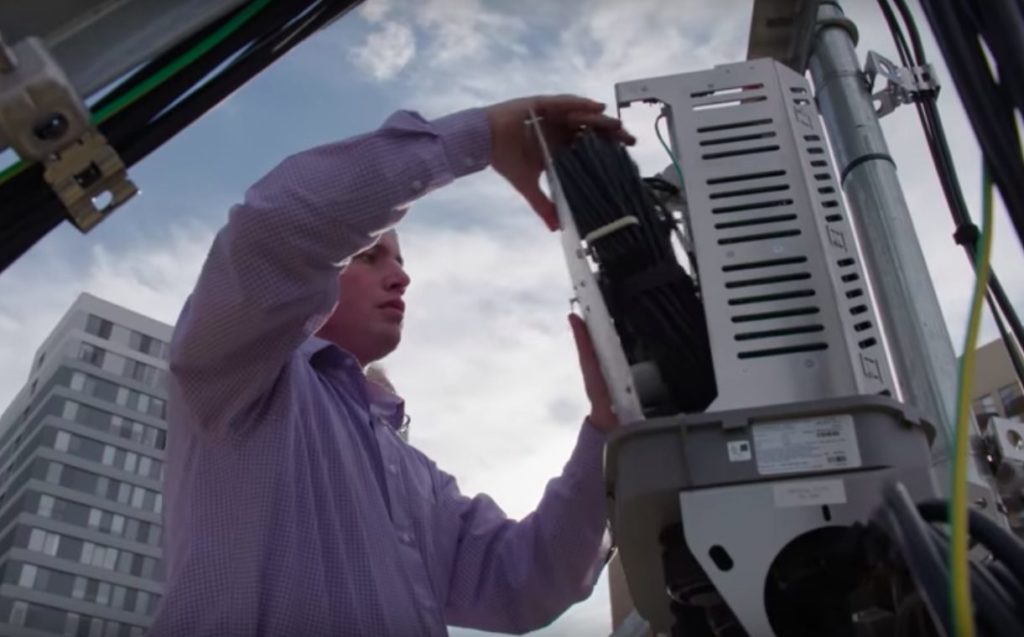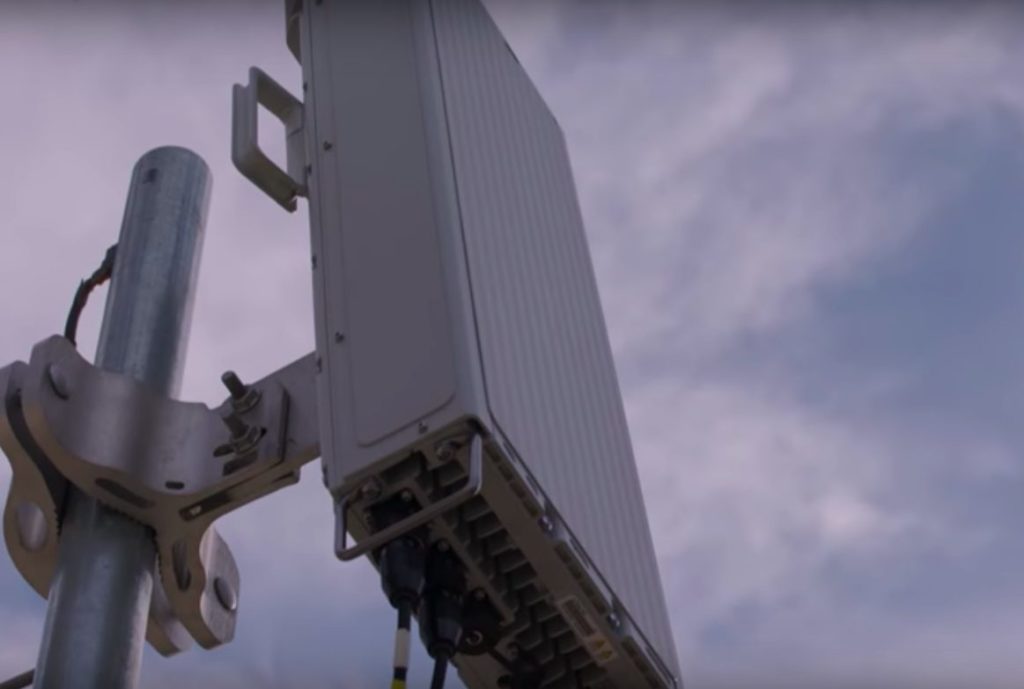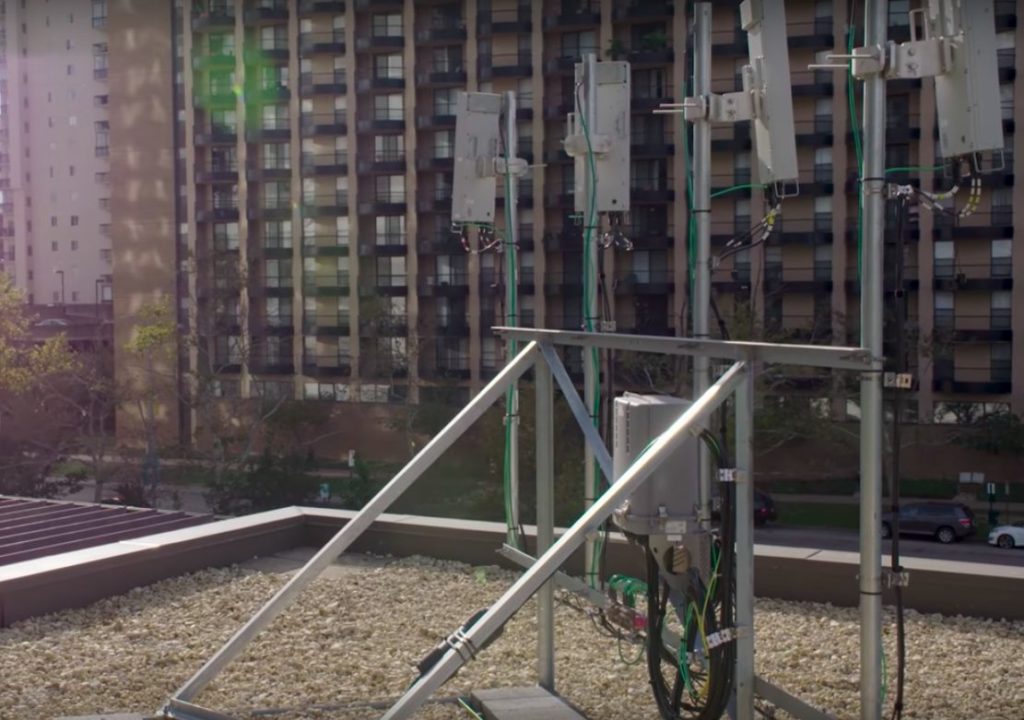Arlington is gearing up to embrace the arrival of the next generation of cell network technology, though some observers worry county officials aren’t acting fast enough to expand access to 5G in the area.
Telecom companies are slowly, but surely moving to deploy equipment for 5G, the fifth generation of network tech, in communities around the country, in order to realize the new network’s promise to drastically increase mobile internet speeds and enable all manner of new innovations, from driverless cars to virtual reality video games.
Workers typically have to attach antennas and other equipment to street poles or traffic signals as part of that process, meaning that local governments (and, often, concerned neighbors) can have a say in how companies handle the installation.
While some utility companies are working directly with network providers to allow 5G tech on street lights, many localities are increasingly moving to craft zoning regulations to allow telcos access to government-owned street poles. Arlington hasn’t gone quite that far, but the county is at least dipping its toe in the water with 5G tech.
After state legislators passed a new law last April, the county began allowing companies to attach “small cell facilities” on privately owned structures in the public right-of-way. Even more recently, Arlington’s begun accepting applications for companies looking to attach the equipment to “cobra-style street lights” — smaller poles named for their snake-shaped heads — in public areas, according to Department of Environmental Services spokesman Peter Golkin.
Golkin expects the change “will allow for deployment of 5G infrastructure in dense areas throughout the county,” and Arlington leaders see the move as an incremental step for the county to take to meet the demands of the telecom industry.
“We’re trying not to be a hindrance to this, while still balancing community concerns,” said County Board Vice Chair Christian Dorsey. “Before, this sort of thing required a County Board review and a long process. Now, within a couple of months, it can get approved administratively. Whenever a carrier company is looking to deploy small towers anywhere, this is a predictable and affordable way to get it done.”
Even still, the change doesn’t seem drastic enough to Jonathan Kinney, an attorney at the Arlington firm Bean, Kinney and Korman, who works with developers and business owners on land use and zoning matters.
He laments that the county still won’t allow 5G tech on larger, 30-foot-high poles in urban neighborhoods along the Rosslyn-Ballston corridor, which he sees as a key step for the county to achieve full 5G coverage in its most populous areas.
“My point has always been that 5G is going to come here, but it really doesn’t do us any good as a community to act otherwise,” Kinney said. “With all the defense contractors and cybersecurity companies here, we shouldn’t be one of the last communities to do this. We should be one of the first.”
Kinney believes the county’s failure to act more aggressively on 5G tech will hamstring its chances to lure all manner of big companies to the area, most notably Amazon. He points out that the company singled out access to advanced network tech in its list of requirements for picking a second headquarters, and he feels the county just hasn’t lived up to the pace set by other HQ2 contenders like those in Texas or California.
“It just seems like this is low hanging fruit, this is something we could do pretty easily,” Kinney said. “But there’s not any strong advocate on the County Board pushing it forward… it just needs a little bit of leadership.”
Dorsey, however, argues that the Board has indeed tried to provide that leadership, and claims that 5G is “not something where we think we’re behind at all.” He says the county “just hasn’t had much unsolicited interest [from the private sector] that’s evolved beyond exploration and discussion at this point,” but that the county has been responsive when called upon.
For instance, Golkin notes that the county has “approved several permits over the last year for vendors to attach small wireless facilities to private structures.” That includes Verizon, who worked with some county apartment owners to install some 5G equipment on several large buildings to test out the tech in a residential setting.
Verizon spokesman John O’Malley says the test “was part of a series of trials” the company did in 11 large localities over the course of 2017. The company’s since removed that equipment, and moved on to testing 5G broadband service in Houston, Indianapolis, Los Angeles and Sacramento.
Dorsey says the county “would be open to exploring” additional partnerships with telecom companies moving forward. He suggested that, as the technology evolves, Arlington could agree to buy a new round of street lights that already have 5G equipment installed on them, instead of retrofitting it to existing poles.
“I would argue that we’re an ideal community for that kind of partnership, because we’re so small and so dense,” Dorsey said. “We are well aware that, if the potential of all the lab tests are realized, we’re talking about an incredible expansion of productivity, which will be incredible for our businesses.”
Yet Kinney cautions that Arlington’s ability to experiment with 5G could soon be constrained by new regulations the Federal Communications Commission is mulling, which would require states and localities to quickly approve 5G deployments, eliminating some discretion in setting personalized standards.
Those changes may be a ways off yet from going into effect, but Kinney notes that Arlington’s lengthy public engagement process for any policy change means the county can’t afford to wait much longer.
“It could take a year to get through the whole process,” Kinney said. “But they could make the legal changes pretty quickly and then come up with the specific policy, and just move it along… We just need to start now.”




